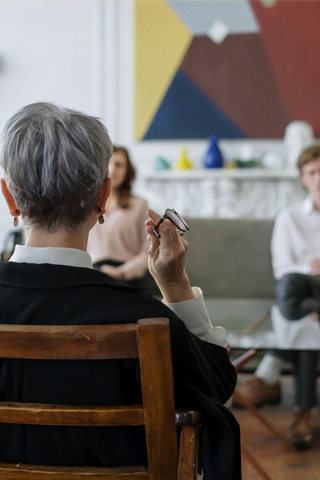Relationships
The Role Healthy Friction Plays in a Relationship
Not all conflict in a relationship is bad. Here's what makes friction healthy.
Posted August 17, 2022 Reviewed by Davia Sills
Key points
- Not all conflict is negative.
- Handled the right way, friction can help couples communicate more effectively.
- A therapist can be a helpful mediator, offering an objective perspective and helping couples navigate thorny issues.
No romantic relationship is without its challenges. Seeing our partners differently than we once did, struggling to communicate effectively, or wanting to rekindle a spark that may seem lost are all valid and natural experiences that people in relationships face on a regular basis—and there are many others as well.
But not all conflict is negative, and constructive conversations that challenge assumptions and clarify feelings can often change relationships for the better—as long as the conversation is respectful and both parties are willing to listen. Below, we’ll outline the differences between healthy and unhealthy friction and explore how best to work through conflict for positive results.
Healthy versus unhealthy friction in romantic relationships
Being able to tell the difference between healthy and unhealthy friction can help you and your partner understand what kind of work your relationship needs.
Healthy friction: Healthy friction often takes place when both partners want to improve their relationship but struggle to maintain honest or open communication with each other. It signifies that each partner is committed to the other and helps them identify areas for improvement in their dynamic. Examples might include one or both partners wanting to:
- Improve verbal communication.
- Overcome barriers to connection.
- Increase empathy or understanding.
- Demonstrate affection or respect more effectively.
Unhealthy friction: Unhealthy friction in a relationship is often the result of a disparity between partners regarding respect, commitment, or trust. When one or both partners lack investment in the relationship or willingness to work on improving it, it may be necessary to reevaluate whether continuing the relationship is healthy or productive.

The role of couples counseling in romantic relationships
Working through healthy or unhealthy friction in a relationship can be difficult without an impartial presence to mediate and provide feedback. Couples that attempt to discuss sensitive or ongoing issues in their relationship can find themselves too emotionally invested to listen effectively or make compromises.
Seeing an experienced therapist for couples counseling can provide both partners with a third party who can listen and offer perspective without investment in how these issues are resolved. Moreover, couples counseling provides a time-tested framework for identifying tension in the relationship and creating actionable strategies to work through it for the benefit of both parties.
Clarifying goals: Some forms of couples counseling (such as the Gottman Method) employ assessment tools to identify challenges in relationships so that couples can set and develop clear goals.
A counselor can help couples that are experiencing healthy friction choose goals based on improving their communication or expressing their feelings more effectively. Conversely, counseling can also help a couple that is experiencing unhealthy friction realize their relationship needs to end and create goals that support an exit strategy for both parties.
Building healthier connections: Other types of therapy, such as emotionally focused therapy (EFT), focus on the role of attachments in relationships—and examine how changing or letting go of attachments can help partners connect to each other.
A couple’s counselor may work with both partners on a series of steps designed to help them de-escalate conflicts, share their feelings from a more vulnerable place, and create healthier new communication strategies. These steps can help couples with healthy friction find new ways to work together to solve problems—and help couples with unhealthy friction become more aware of the state of their relationship.
Successfully working through friction in couples counseling
Couples that start counseling as a way to process and work through friction can help themselves by remembering the following:
- Counseling is a constructive experience and does not necessarily indicate that the relationship is in jeopardy. More than half of people who seek couples counseling do so because they want to improve the connection between them and their partners.
- The more you trust your therapist, the more effective counseling can be. Strong connections between couples and their counselors can improve romance within the relationship by making it easier to work through challenges together.
- Working on problems within a relationship is not a sign that the relationship is failing—in fact, it’s a sign that both partners are willing to try solving those problems.
Improving a relationship doesn’t happen automatically; it requires an investment of time and effort from both parties. Don’t be afraid to acknowledge friction in your relationship—instead, normalize working on it and seek the support of experienced professionals who can help focus your efforts.




